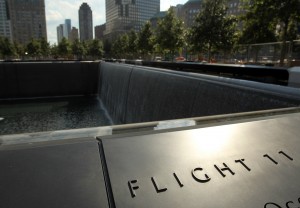
As the nation prepares to commemorate the tenth anniversary of the September 11, 2001, terrorist attacks on the United States, many teachers are struggling with how to teach about the disastrous events to students who might have a living memory of the events.
Many younger students, meanwhile, might not even realize the significance of the day itself.
“When young students watch the image of the two towers being attacked, they don’t understand if that’s happening now, if it’s happening many times over, or one time,” said Joan Brodsky Schur, a longtime member of the National Council for the Social Studies (NCSS) and author of We Are Living History: Reflections of a New York City Social Studies Teacher.
“I feel certain that a school with young children is going to do whatever memorializing they’re going to do in a respectful way towards the people who gave their lives, but also respect the needs of young children.”
See also:
Today’s high school students “were between three and eight when the event happened, and while they probably do remember the day because the world sort of stopped in the U.S., they probably don’t have the emotional memory that adults have,” said Angus Carroll of Cengage, which has produced an in-depth brochure on teaching about 9-11. “In one way that’s good, because now we can look at it from a more factual standpoint.”
Carroll said Cengage’s focus has been on the events that 9-11 set in motion, rather than simply focusing on the day itself.
“We wanted to look at the effect 9-11 had on the nation 10 years after,” he added.
Brodsky Schur suggested linking 9-11 lessons to general social studies topics as a way to teach the event in context.
“I think a lot of teachers are looking for things to compare 9-11 to, in a way. I don’t think there’s any exact parallel in history. It’s one of those horrible events that nobody could imagine would ever happen,” she said. “What I did in thinking about this was to pick out some themes in American history that I think you can use throughout the school year to make parallels to this event.”
She proposed themes such as resilience in times of hardship, the government’s balancing of the need to protect its citizens’ safety and also protect their civil rights, and America and international law.
“I think one of the hardest things for teachers to face is teaching something they remember personally, and yet most students have no memory of it at all,” Brodsky Schur said. “It’s an unusual juncture in history.”
NCSS President-Elect Sue Blanchette has used personal stories to engage students who had no recollection of the day the Twin Towers fell.
See also:
“At the time of 9-11, my son-in-law was an Air Force pilot, so he was able to give me some insights on what it was like to fly the skies when nothing was out there,” Blanchette said. She encouraged the use of personal stories to bring the day alive for classes.
“We owe it as adults to try and make things like this real for students,” Blanchette said. “They live in a world that has been impacted by this event, but they might not realize it. To them it’s perfectly normal to take their shoes off when they go through the airport. They don’t know that there was a time when that didn’t happen; when you could go to the gate and wave your friends off. So we feel students need to understand how this changed the world that they live in.”
While she said it’s important to express national sentiment, she said teachers can’t let those feelings interfere with teaching the facts.
“Almost every generation has its pivotal moment. If you talk to the World War II generation, they can tell you where they were when they heard about Pearl Harbor. If you talk to my generation, we can tell you where we were when we heard about John Kennedy. The emotions are part of it. When we are teaching it, we can use the emotions to make it real, but we must be very careful not to present an unbalanced approach,” Blanchette said.
The lack of set standards for discussing 9-11 allows for some degree of flexibility in the classroom.
“There’s no official curriculum on 9-11 yet. … There have been a few state efforts and so forth, but there really isn’t much for teachers to reach out and get right now,” Carroll said.
See also:
“Most schools are looking for ways to memorializing through art, music, and public service, and I think that those are good in that they can cross a wide range of age groups and just provide a creative outlet, a purposeful outlet for building community,” said Brodsky Schur.
Blanchette said many teachers she has spoken to will not be focusing on their 9-11 instruction solely in September.
“Most of them said that while they will probably mention the day, they’d rather teach it at the context of which it happened, which would come at the end of the school year in an American History course,” Blanchette said. “I suspect a lot of teachers will be acknowledging it but keeping the actual teaching of it where it fits chronologically.”
- New film fights negative perception of teachers - September 16, 2011
- Textbook-free schools share experiences, insights - September 7, 2011
- Social websites are latest sources for plagiarized material - September 1, 2011



Comments are closed.